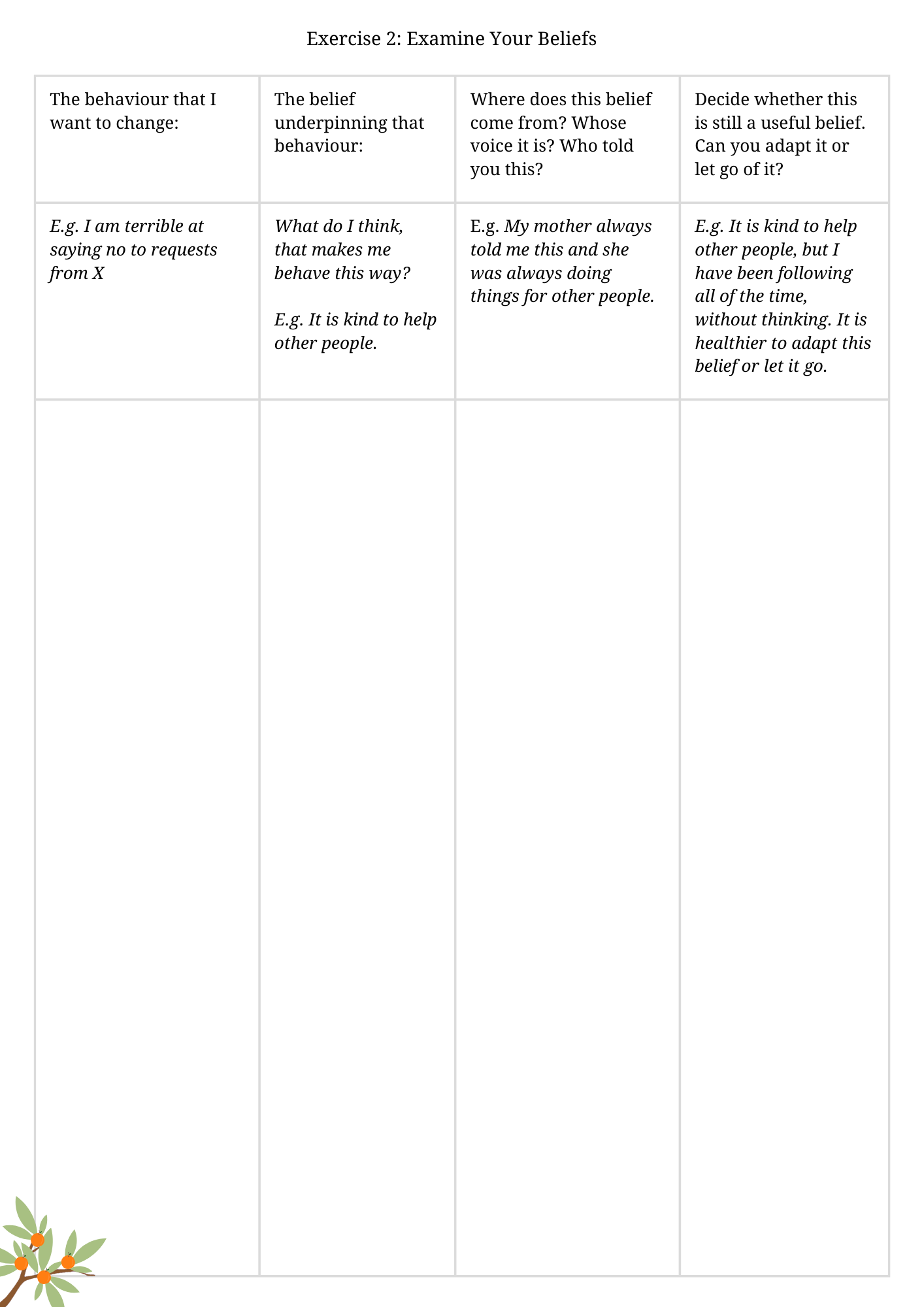FOUR TELLTALE SIGNS YOU’RE A PEOPLE-PLEASER
WITH COGNITIVE HYPNOTHERAPIST ZEENAT AHMED-PETO.
Kicking off our Mental Health Awareness Week series, we’re exploring the concept of people-pleasing with cognitive hypnotherapist Zeenat Ahmed-Peto.
Zeenat (literally) wrote the book on this subject, Too Kind: A Survival Guide for Sensitive Souls, and will be celebrating its launch at Anomalous this month.
(Psst, she’s also invited you - read to the end of this post for ticket info and an exclusive peek inside the book!)
Based on ten years of clinical experience with clients facing similar challenges, Zeenat’s book is an essential read for those who struggle with prioritising themselves.
Only blue quoted text is the opinion of Zeenat Ahmed-Peto (marked ZAP ⚡️ - very cool), the rest is my own.
You find it difficult to say “no.”
A classic trait of people-pleasing is the inability to tell people no.
Though offering your help to people is indeed a nice thing, there comes a point in which you begin to spread yourself too thin across too many responsibilities.
Perhaps you’ve agreed to help a colleague with a deadline, alongside taking on a new project at work. At home, you’re exhausted, but have already agreed to help your child with homework, drive your in-laws to the airport and help to cook a five-course meal for the impromptu dinner party your wife threw.
Wait, weren’t you supposed to paint your neighbour’s shed yesterday?
ZAP: What is underneath all of this is that, often, people want to be liked, they want to be in favour. They don’t want to be considered difficult or unkind. They like the approval that they get from other people when they accept the task or responsibilities.
I’m a hypnotherapist, so a lot of the things I talk about are to do with the unconscious mind; so I would say that most of these things happen unconsciously.
You put other people’s needs ahead of your own
In the hierarchy of life, people-pleaser’s needs tend to be right at the bottom of their own pyramid.
This trait could be mistaken as a positive trait in people-pleasers, as it generates feelings of belonging, being liked and perceived as helpful or supportive. Though these are indeed pleasant emotions, a consistent disregard for your own needs or desires will eventually come back to bite you in the ass.
ZAP: In the short term, it can be quite fulfilling to provide and be the person who takes on the responsibilities and says ‘don’t worry, leave it to me, I’ll get it all done.’
Every time they’re saying yes to somebody else, they’re putting their own wishes and desires lower down the priority list. That often leaves them feeling disillusioned or burnt-out.
You are experiencing burn-out
After a gruelling, long shift in the full-time job that is people-pleasing, it is highly likely that you will experience burn out.
Burn-out is one of those things that some people don’t take that seriously, but it can be a precursor to much more serious problems like chronic fatigue and mental or physical illness.
Though a lot of people may experience different ways of people-pleasing, or being “too kind”, more often than not they end up in a similar situation.
ZAP: The reason why I decided to write about this particular area is because I was finding that lots of the clients I was working with were coming with this similar mindset.
Even if they had very different problems and issues that they wanted to work on, they were very kind and were often putting other people first. One of the things that happened is that they ended up burnt out, exhausted and often unwell, chronically ill or suffering with exhaustion.
You experience resentment when others can’t help you
A lifestyle of constantly putting others first will be threatened when someone does not return the favour. It can lead to feelings of resentment and bitterness toward the person who has not come through for you.
People with good boundaries in place have every right to exercise them, however this could be perceived as an attack or a deliberate, personal rejection of your needs.
This makes it easy to see that people-pleasing may actually have the capacity to damage your relationships and opinions of people who have otherwise done you no wrong.
ZAP: They feel affronted by that because they think ‘well, I’ve dropped everything for you and for other people in the past and now I’m asking for something and I’m not getting the support.’
So, that can leave them feeling bad when other people don’t reciprocate.
SO, ARE YOU A PEOPLE PLEASER?
If this post resonated with you, Zeenat’s book is an essential resource.
Learn to tackle your self-limiting beliefs and live a happier, more fulfilling life using her expert insight and real stories from real clients.
Exclusive to Anomalous Stories readers, Zeenat has shared a super secret sneak peek of one of the many exercises from within the book. Try it out and drop us a comment to let us know how it went!
Have questions? Why not ask the expert herself by purchasing a ticket to the launch of Too Kind: A Survival Guide for Sensitive Souls. Only a handful of tickets remain, and, if you’re gonna people-please today, let it be Zeenat! 😜





